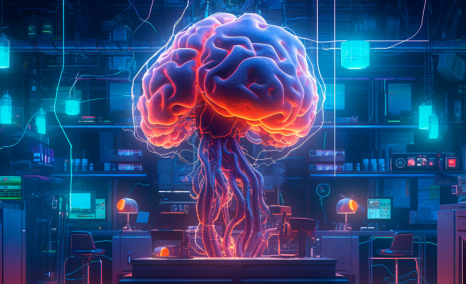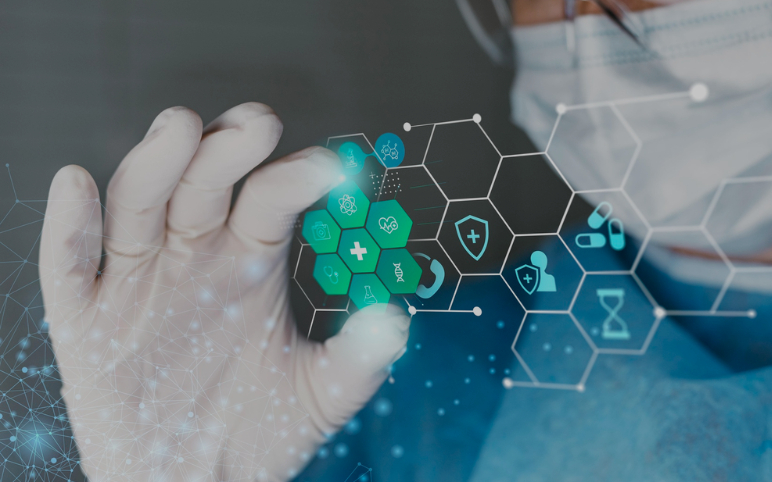Major Depressive Disorder Market Quadrant Growth Soars Owing to Expected Launch of Key Therapies
Aug 16, 2021
Depression is a common and serious medical condition that affects the way people behave, act and think in a negative manner. Also known as Major Depressive Disorder (MDD) or clinical depression, it leads to a persistent feeling of sadness. It affects more than 300 million people of all ages globally and is the leading cause of disability. In most severe cases, it can often lead to suicide. As per DelveInsight’s estimates, Major depressive disorder prevalence was approximated to be 43,845,330 in the 7MM in 2020, which is on a gradual rise.
However, due to the unprecedented pandemic situation, there has been a substantial rise in the US Major depressive disorder prevalence from 7% before pandemic to approximately 27% during the first year of pandemic. Depression already poses a huge challenge to healthcare sector and such a sudden increase has added to the global burden of the disease.
The firt set of therapies namely antidepressants in 1950s led to a revolution in the treatment approaches of depression. To date, the avialbility of antidepressants has inflated in terms of number as well as diversity. The MDD treatment strategies majorly comprises pharmacological and non-pharmacological options.
Downloads
Click Here To Get the Article in PDF
Recent Articles
- How Depression Is Eroding The Mental And The Physical Health Of The Society?
- Major Depressive Disorder: Unveiling Market Moves and Commercial Breakthroughs
- How to Cure Treatment-resistant Depression?
- Long-Awaited Victory: Fabre-Kramer’s Major Depressive Disorder Treatment Drug Gains FDA App...
- Caristo Wins FDA Clearance for AI Solution to Prevent Heart Attacks; Lindus Health and Sooma Medi...
The pharmacological therapies include Selective serotonin inhibitors (SSRI), Serotonin–norepinephrine reuptake inhibitors (SNRIs), serotonin modulators, tricyclic antidepressants are the classes of therapies currently approved for treating MDD, which nopharmacology options include psychotherapy, electroconvulsive therapy and transcranial magnetic stimulation. However, recent years have witnessed a combination of pharmacological and nonpharmacological therapies have helped attenuating the depressive symptoms.
Further, the treatment course varies with the severity of the disease. In mild to moderate cases, the initial treatment revolves around evidence-based mono-therapy. Mild symptoms may be relieved by learning about the condition, lifestyle changes (such as regular physical exercise), and psychological therapy. For moderate to more severe depression, pharmacological treatments coupled with other psychotherapy treatments can be offered based on patient preference and availability such as Cognitive Behavior Therapy (CBT) , Interpersonal Therapy (IPT), Mindfulness-Based Cognitive Therapy (MBCT) , Behavioral therapy/behavioral activation (BT/BA), Acceptance and commitment therapy (ACT), and Problem-solving therapy (PST).
Recently, in August 2020, the USFDA gave it recommendation to Janssen Pharmaceutical’s supplemental new drug application for the expanded use of SPRAVATO esketamine Clll nasal spray for the treatment of Major depressive disorder with acute suicidal ideation or behavior. It is the first and only approved medicine that has managed to reduce depressive symptoms within 24 hours, providing a new option for significant symptom relief until a longer-term, comprehensive treatment plan can take effect.
Yet, the Major depressive disorder therapeutics market is dominantly occupied with cheap and generic therapies. What concerning here is the fact that the condition continues to be highly underdiagnosed. An estimated two-thrids of all the US MDD cases go underdiagnosed, owing to either stigma or inability to distinguish between the different symptoms of clinical depression. Additionally, MDD patients are more likely to be nonadherent than nondepressed individuals. Treatment outcomes are poor due to nonpersistence, premature medication discontinuation and there is a consistent switch from one antidepressant medication to another that adds to health care costs. In general, Major depressive disorder is associated with a high economic burden, and the majority of cost stems from inability of of a person to be productive at work, which further adds burden on the patient and caretaker.
However, to overcome the treatment gaps, several pharma and biotech companies including Axsome Therapeutics, Luye Pharma, Sage Therapeutics, Chase Therapeutics, Minerva Biosciences, Relmada Therapeutics, Praxis Precision Medicines, among others are exploring novel therapies and treatment modalities to bring on innovative, safe and effective medications for the patient pool. An expected launch of emerging MDD therapies such as Travivo (Fabre-Kramer Pharmaceuticals), Vraylar (Allergan/Gedeon Richter), PDC-1421 (Biolite Inc.), AV-101 (VistaGen Therapeutics), AXS-05 (Axsome Therapeutics), Pramipexole (Chase Therapeutics), SAGE-217 (Sage Therapeutics), LY03005 (Luye Pharma Group), Seltorexant (Minerva Therapeutics), PH10 (VistaGen Therapeutics), PRAX-114 (Praxis Precision Medicines), REL-1017 (Relmada Therapeutics), Caplyta (Intra-Cellular Therapies), and others is expected to boost the Major depressive disorder therapy market.
DelveInsight estimates that out of all the emerging therapies AXS-05 and Spravato are anticipated to capture maximum MDD market share owing to the novelty, effectiveness and promising potential of of the therapies as shown in clinical trials. However, Major depressive disorder market size expansion is restraind by the the failure of clinical trials at least 2 appropriate trials of antidepressants from different pharmacological classes to produce clinical remission. Nevertheless, DelveInsight estimates that the restraints and barriers are overpowered by the extensive R&D, increasing prevalence, heightened awareness around the condition, willingness to accept the condition as medical illness, opting for treatment and others.
Downloads
Article in PDF
Recent Articles
- Narcolepsy now a confirmed Autoimmune Disorder
- Evaluating the Role of Digital Therapeutics as an Alternative to Conventional Therapies for Depre...
- J&J’s SPRAVATO Achieves Milestone with Monotherapy Approval in Depression Treatment
- CG Oncology Teams Up With Merck & BMS; Parse Biosciences Partners With Molecular Diagnostics...
- Watch Out For Top Pipeline Therapies Making An Impact In The Bipolar Depression Market




